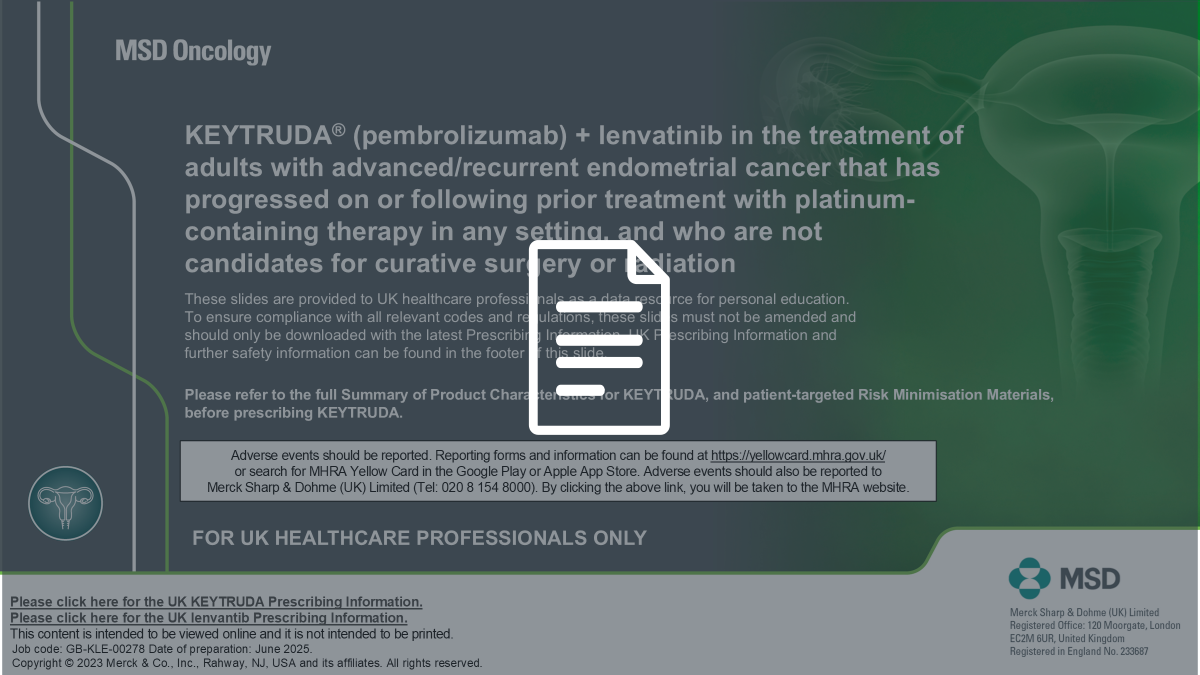About KEYTRUDA in endometrial cancer
KEYTRUDA® (pembrolizumab) in endometrial cancer
Prescribing Information [External link]
KEYTRUDA, in combination with lenvatinib, is indicated for the following:
| Advanced or recurrent endometrial carcinoma | |
|---|---|
| For use in | The treatment of advanced or recurrent endometrial carcinoma in adults who have disease progression on or following prior treatment with a platinum-containing therapy in any setting, and who are not candidates for curative surgery or radiation.1 |
| Dosing schedule | The recommended dose is either 200 mg every 3 weeks or 400 mg every 6 weeks, administered as an intravenous infusion over 30 minutes.1 |
| Duration of treatment | Treat until disease progression or unacceptable toxicity.1 |
| Clinical trial | KEYNOTE-775 was a multicentre, open-label, Phase 3 trial, for patients with confirmed advanced, recurrent, or metastatic endometrial cancer of any histologic subtype, except carcinosarcoma and sarcoma. Patients were assigned in a 1:1 ratio to receive either lenvatinib plus pembrolizumab, or chemotherapy of the treating physician’s choice (with doxorubicin or paclitaxel chosen before randomisation in the chemotherapy group).2 Click here to download the KEYNOTE-775 clinical data presentation. Download |
Refer to the Summary of Product Characteristics and Risk Minimisation materials available on the emc website before prescribing, in order to help reduce the risk associated with KEYTRUDA.
References
- KEYTRUDA Summary of Product Characteristics.
- Makker V et al. N Engl J Med. 2022;386:437–448.
Supporting documentation
Prescribing Information [External link]
By clicking the link above you will leave the MSD Connect website and be taken to the emc PI portal website.
